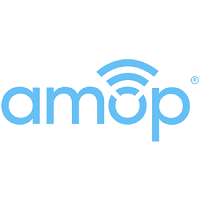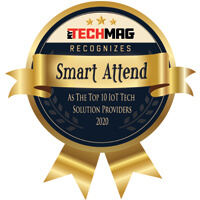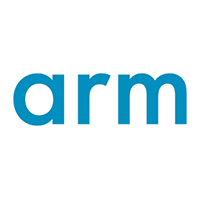
 “Waspmote—Libelium’s open wireless sensor platform—is modular, easy to deploy and ready to integrate with third-party Cloud systems such as Microsoft, IBM, Indra, Esri, ThingWorx, or MQTT“
“Waspmote—Libelium’s open wireless sensor platform—is modular, easy to deploy and ready to integrate with third-party Cloud systems such as Microsoft, IBM, Indra, Esri, ThingWorx, or MQTT“
The story of incorporating Libelium is that of bootstrapping. Alicia Asín, Co-Founder & CEO along with David Gascón, Co-Founder & CTO, started the company in 2006, right after graduating. From the starting, they wanted to do something viable, and we focused on revenue. Positive cashflow was their obsession. Because of that, they started with Cooking Hacks. It made it possible to finance Libelium and acquire capital for R&D that enabled them to build the Waspmote sensor network. It has also given them the legacy of working closely with makers and universities.
Libelium designs and manufactures wireless sensor network devices so that system integrators, engineering, and consultancy companies can deliver reliable Internet of Things (IoT), M2M, and Smart Cities solutions with minimum time to market. Established in 2006, Libelium is privately held and has headquarters in Zaragoza, Spain. Waspmote—Libelium’s open wireless sensor platform—is modular, easy to deploy, and ready to integrate with third-party Cloud systems such as Microsoft, IBM, Indra, Esri, ThingWorx, or MQTT.
Over 2,000 developers from 115 countries in companies ranging from startups to universities to large international corporations have adopted Libelium’s hardware and software technology for projects in North America, Australia, Asia, and Europe. Commercial deployments based on Waspmote include applications as varied as parking, traffic congestion, environmental monitoring, and precision agriculture.
The Unique Solution
Alicia & David are the Internet of Things enablers. They offer a modular, parallel, and open source wireless sensor hardware platform that transfers any sensor data, using any communication rules to any information system. In other words, Waspmote sensor device can be utilized for detecting free parking spots, to improve measure pollution levels, wine quality, and air quality, produce noise maps, save water in irrigation, and more. Following the horizontal approach means resigning from direct way to the end-user market in favor of working very closely with skillful partners in each area or vertical. Thanks to this program, they now sell their products in 75 countries worldwide.
Libelium Waspmote and Plug & Sense! Families extend monitoring capabilities to 120 sensors to incorporate hundreds of IoT applications such as Smart Environment, Smart Water, Smart Cities,Smart Parking, Smart Agriculture, etc. Some of the present air and water sensors have been upgraded for better accuracy on particle measurement (ppm’s). The latest version also includes actuators to control DC units such as watering valves, thermostats, illumination systems, motors, PLC’s, etc. Lastly, new energy-saving modes extend nodes’ lifetime from 5 to 10 years.
In a highly fragmented IoT market, interoperability is critical to ensure Libelium technology will fit any project. The new version has updated and certified the following communication radios: LoRaWAN, Sigfox, WiFi, 4G, 802.15.4 / ZigBee, 868 / 900 RF. Also, the Plug & Sense! 4G US model is the first sensor device passing PTCRB and AT&T compliant device tests, opening the door for the big IoT cellular projects coming in the US market.
According to Alicia, when they started, the market was industrial. “It’s been like that with every technology. It first entered the enterprise and then became a consumer product. Think about cell phones that were first used by business people. Or about personal computers. You didn’t have a personal computer for yourself until all the companies started using them.” “The problem with IoT is that we’re living in exponential times, and we’re seeing these two ways overlapping. And now there’s the problem of hype.
When you go to the late majority, they’re still listening to the things about the connected fridge or that stupid egg thing from Quirky. And they say: you know, I think you’re talking about toys. And you’re trying to bring toys into an industrial environment.”
Adding LoRaWAN
Libelium proceeds to power the Internet of Things (IoT), adding LoRaWAN wireless connectivity for India to Waspmote, Plug & Sense! And Smart Parking sensor accessories. The Spanish IoT company adds extra coverage to its wireless sensor network beside LoRaWAN 865 – 867 MHz band.
By 2025, 1 out of every nine smart devices is estimated to be connected with one form of moderate powered wide area network technologies (LPWAN). In second, Libelium offers the broadest interoperability with a large variety of connectivity choices for the IoT in response to strong desire for the LPWAN, which is gaining traction globally. Libelium has lately announced new LPWAN coverage for Asia Pacific, Australia, and Latam with LoRaWAN and Sigfox technologies.
While North America, Europe, and Greater China, are, expectedly, the runaway leaders, India is running ahead in this domain. A recent report tightened the annual IoT growth rate in India (for the 2017-2020 term) at ~41%, over the worldwide growth rate. With proven advantages in a large number of fields – from smart agriculture and place automation to sensor-based climate forecasting, intelligent water management or smart cities importance – LoRaWAN is rapidly gaining in reputation and adoption across the globe.
Libelium has increased its turnover in India in the last five years, demonstrating rising demand in this country. Libelium operates in this area via five distributors -AqTronics, Arrow, Intrinsic, Okkos, and Pentagon- working as system integrators developing latest corporate and smart city projects in a market wherever investments in IoT technology are growing. Universities and research centers are also necessary in this market due to the expansion and prototyping of the electronics industry.
In India, there is a good amount of research effort, developments, and trials performed utilizing LPWAN technology. Moreover, Tata Communications announced lately that its LoRa network would include most of India by the end of 2019 with deployment in 38 towns, including Mumbai, Delhi, and Bengaluru.
Other providers of LoRaWAN connectivity, like Senet, SenRa, and Kerlink, are powering the deployment and accelerated the expansion of the network throughout India. Kerlink is deploying what it represents as the world’s biggest LoRa network in India in cooperation with Tata Communications. The system will bring connectivity to higher than 400 million people across 2,000 cities and associations through more than 10,000 so-called connectivity “duties.”
Integration of customized IoT projects
Libelium is tailoring IoT solutions to enhance industrial competitiveness. In a technological business where the demand for professional solutions is frequently challenging, Libelium has decided to concentrate on the strategic shift to offer complete IoT technology solutions concentrating in vertical applications. In this way, Libelium is increasing its market placement towards to become a system integrator.
Alicia states that “the market is developing towards projects that require increasingly specific, accurate, and high-quality technology. For this reason, we are going forward by directing all our experience and expertise as device manufacturers towards strategic advising to offer customers the solutions they demand, either with goods from our catalog or with combination from third parties.”
This is possible recognition to the vast ecosystem of partners that Libelium has been expanding since the launch of The IoT Marketplace as a meeting time for “ready-to-use” solutions that include software, hardware, and cloud connectivity.
In fact, at IoTSWC19 in Barcelona, Libelium showcases solutions for Smart Cities (smart parking, water quality management, smartphone detection, and air condition monitoring), Smart Agriculture (crops and farm intelligent management, solar panels performance) and Industrial IoT (tracking, smart industry, safety) among others answers.
Among the best solutions at the stand, Libelium highlights the use of IoT for reinforcements such as parking to boost urban mobility; industry to enhance competitiveness, retail to enhance the customer knowledge; pollution to recover environment; agriculture to improve crop productivity and solar energy to optimize performance.
Focused on the Future and Smart Cities
Libelium concentrates on smart cities and agriculture, which so far have been the most influential verticals for them. And also verticals where they have the greatest expertise, so that’s natural. Also, smart cities need products with a similar approach to Libelium’s. When they design merchandise, they always think about interoperability. Libelium strives to connect any sensor, utilizing any communication protocol, to any cloud service. That’s why they are an ecosystem business.
“This is interesting for municipalities because professional companies shouldn’t hijack them. A city should be able to change their cloud service provider after five years if they’re not satisfied. If a wireless technology they’re using is not working, they should be able to change. Once you’ve installed the infrastructure and spent all the money, it’s doubtful you’re going to replace the devices,” adds Alicia. “Instead, if you have your installation and can adapt to a different protocol, you have all your options clear. It’s the same with cloud services. When we say we’re integrated with various cloud platforms, we mean that you can configure your gateways in our GUI and start transferring data. And if you’re not happy after six months or a year, you can deactivate it plus activate another one. This is especially needed in the smart city context, and that’s why our solution furnishes so well there.”
According to Alicia, appropriately used, IoT can help foster democracy in cities. Data would produce more rational decisions and clarity. And if all data would be public, citizens could check the progress of their towns. But going ahead, if cities are generating data and advertising it in an accessible format, startups could use it to build new services. It’s similar to the Green Button Initiative with energy in the US that enables companies to develop apps to guide you on power consumption. That could be extended to a complete city.







